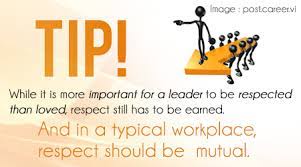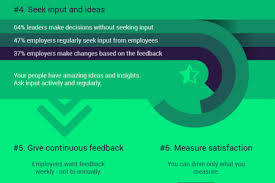8 Adjectives that Describe Leadership and What They Mean
Leadership is an important trait in any organization. It can be difficult to identify the qualities of a good leader, but there are some key adjectives that often describe a successful leader. Courageous and decisive are two examples of adjectives that often describe leadership behavior. A good leader must be courageous in order to take risks and make decisions. Decisive leaders know when to act and when not to, which is crucial for running an organization efficiently.
Other important qualities for a successful leader include charisma and integrity. Charismatic leaders have the ability to draw people towards them with their energy and passion. They also have a strong belief in themselves and their goals, which makes them credible witnesses in negotiations or public speeches. Leaders with integrity always abide by the law, no matter what the consequences may be. This quality helps build trust among employees and allows teams to work cooperatively without fear of reprisal.
In addition to these key qualities, a good leader must also have excellent communication skills. Without effective communication, it is difficult for teams to work together harmoniously or achieve collective goals. Leaders should be able to both express themselves clearly and convincingly, which can be difficult when emotions are high or complex issues are being discussed. Finally, a good leader must be able to motivate their team members in order to achieve success. Motivating others can be difficult, but it is one of the most important responsibilities of a leadership position.
examples of leadership roles
Leadership can be described in a variety of ways, but some of the most common adjectives used to describe leadership are charismatic, decisive, and visionary. Here are eight examples of leadership roles and what they mean:
1. Leader
A leader is someone who inspires others to follow their example and achieves goals together. A good leader is charismatic, decisive, and visionary. They know how to get their team members to work together and achieve common goals.
2. Manager
A manager is a leader who oversees employees and directs their work. A good manager is decisive, organized, and has excellent communication skills. They make sure that employees are productive and meet deadlines.
3. Coach
A coach helps people learn new skills or improve their performance. They provide guidance and feedback while motivating their students to achieve their goals. A good coach is patient, supportive, and encouraging.
4. Teacher
A teacher helps children learn new information by teaching them in a classroom setting. Teachers must have excellent communication skills and be able to motivate students to learn. They also need to be patient enough to give students time to understand the material.
5. Leader of a Team
A leader of a team is responsible for leading a group of people towards a common goal. They need to be charismatic, decisive, and have excellent communication skills in order to effectively lead a team. Leaders of teams often work together with other leaders in order to achieve common goals
Effective leadership is not a position, it’s a mindset.
Leaders are not born, they’re made. Anyone can develop the skills and characteristics necessary to be an effective leader. The most important thing is having the right mindset.
A leader is someone who is able to see the potential in others and help them realize it. They are able to motivate and inspire people to achieve great things. A leader is also someone who is willing to sacrifice their own interests for the good of the group.
The most important trait of a leader is courage. Leaders have to be brave enough to stand up for what they believe in, even when it’s unpopular or difficult. They must be willing to take risks and make tough decisions.
If you want to be a leader, start by developing the right mindset. Then work on honing your skills and building your courage. Remember that leaders are made, not born – anyone can become one if they set their mind to it!
Leadership is not about having all the answers, it’s about inspiring others to do their best.
Leadership is not a position or a title, it’s an approach. It’s about setting an example and motivating others to do their best. Leaders are not born, they’re made. Anyone can learn the skills of leadership and put them into practice.

The most important thing for leaders is to be honest with themselves and others. They need to have integrity and be true to their values. Leaders also need to be open-minded and always willing to learn new things.
There are many different types of leadership, and each has its own strengths and weaknesses.
The most important thing is to find a leadership style that works for you and your team.
One popular leadership style is transformational leadership. Transformational leaders are those who inspire change and growth in their followers. They are visionary and passionate, and they have the ability to motivate others to achieve their goals.
However, transformational leaders can also be impulsive and impatient, which can lead to conflict within the team. Another downside of this leadership style is that it can be difficult to maintain over time – as people’s needs and motivations change, so too must the leader’s approach.
If you’re looking for a more stable leadership style, transactional leadership might be a better fit. Transactional leaders focus on maintaining the status quo and ensuring that tasks are completed efficiently. They typically use rewards and punishments as motivation, which can make them seem less inspiring than transformational leaders. However, their stability and predictability can be a valuable asset in times of change or uncertainty.
The key is to find a leadership style that works for you – one that plays to your strengths and helps you overcome your weaknesses. There is no “one size fits all” approach to leadership – what
It’s important to be open to change and learn from others, even if you don’t agree with them.
In today’s world, it’s more important than ever to be open to change and willing to learn from others. With the way the world is constantly changing, it’s essential to be adaptable and understand that there are always new things to learn. It can be easy to get stuck in your ways, but it’s important to remember that growth comes from learning new things and expanding your horizons. Whether you’re learning something new about another culture or hearing a different perspective on an issue, it’s important to keep an open mind and remember that we can all learn from each other.
Leaders must be able to be flexible and adapt their strategy as the situation changes.
In today’s business world, the ability to be flexible and adapt to change is an essential quality for any leader. The successful leader must be able to anticipate change and adapt their strategy accordingly. being able to identify potential changes in the marketplace or within the company itself is a critical skill.
The ever-changing business landscape means that leaders must constantly be on the lookout for new opportunities or threats. They need to be proactive in order to stay ahead of the competition. Being reactive will only put them at a disadvantage. Leaders must also be willing to take risks. In order to succeed, they sometimes have to take calculated risks that could pay off big in the end.
The most successful leaders are those who are able to adapt their strategies as needed and who are always looking for ways to improve their businesses. They understand that the key to success is staying one step ahead of the competition by being flexible and open-minded.
Leadership is not always easy, but it’s worth it if it leads to success.
True leaders are not born, but they are made. They learn from their mistakes and strive to become better versions of themselves. They know that leadership is about more than just being in charge – it’s about inspiring others to achieve great things.
If you want to be a leader, start by learning from the best. Read books, listen to podcasts, and find mentors who can help you develop your skills. Then put those skills into practice by taking on leadership roles in your community or workplace. When you make a difference in the lives of others, you’ll know that leadership is worth the effort.
It’simportant to have a good attitude and set an example for your team members.
A positive attitude is infectious and sets the tone for the entire team. As a leader, it’s important to be aware of your own attitude and how it’s affecting those around you. A positive outlook will inspire others to do their best work, while a negative one will only bring everyone down. If you want to get the most out of your team, it’s crucial that you set the right example from the start.
Leaders should never give up on their goals or dreams, no matter how difficult the journey may seem at first
. They should always remember that anything worth achieving is going to require hard work and dedication. Leaders should also be prepared to face obstacles and challenges along the way. However, they should never give up or lose hope. instead, they should view these challenges as opportunities to learn and grow. Ultimately, leaders should never give up on their goals or dreams because they are the key to making positive change in the world.
leadership influence
Leadership has a tremendous impact on every aspect of an organization. The qualities and behaviors that make a good leader are indispensable for any organization to thrive. There are many different adjectives that describe leadership, but some of the most common include decisive, inspiring, competent, principled, and adaptive.
Decisive: A leader who is decisive makes quick decisions and gets things done. They know what they want and how to get it, without wasting time on unnecessary details.
Inspiring: Leaders who are inspiring are able to bring others along with them. They have a clear vision and message that can inspire others to follow in their footsteps.
Competent: Leaders who are competent know their stuff. They know how to handle their own responsibilities and manage difficult situations.
Principled: Leaders who are principled stand for something important. They have a strong belief in what they believe in and they put that belief into practice in their everyday lives and work.
Adaptive: Leaders who are adaptive are able to change with the times. They understand how changing environments affects their followers and adjust their behavior accordingly.






